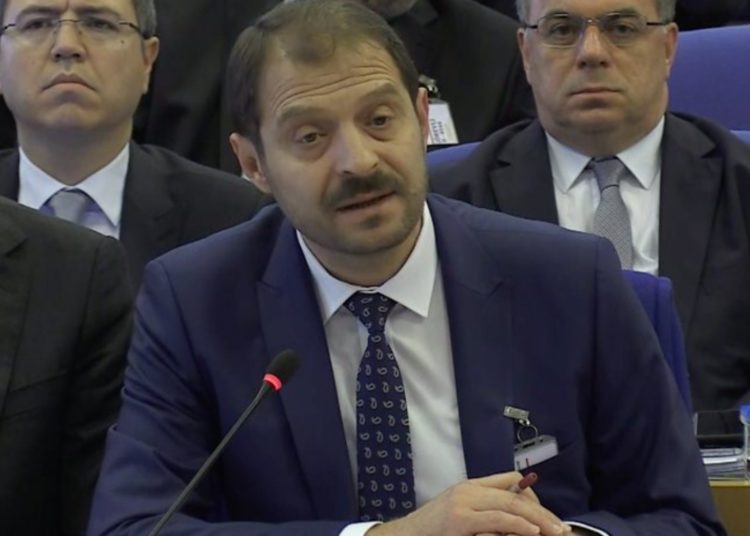Abdullah Bozkurt/Stockholm
The man who heads Turkey’s top nuclear power agency turns out to have worked with operatives of the Islamic Revolutionary Guard Corps (IRGC) Quds Force, a confidential investigation revealed.
According to secret wiretaps obtained in the course of a counterterrorism probe into Quds Force cells by the Turkish police, Zafer Demircan, president of the Nuclear Regulatory Authority (Nükleer Düzenleme Kurumu, NDK), helped Quds Force operative Sıtkı Ayan, the owner of Som Petrol Ticaret A.Ş., push for a venture involving Iran’s national gas company.
The wiretaps show that Ayan coordinated his business operations with Quds Force Gen. Sayed Ali Akber Mir Vakili and frequently reached out to Demircan to sort out problems, learn of pending legislation and obtain classified government documents.
The evidence collected through court-authorized surveillance and wiretaps from 2011 to 2014 led the investigators to conclude that Demircan was leaking confidential notes from inside the government about expected legislative changes and advising Ayan on how to proceed with the gas business, which would involve a substantial investment in Iran.
Three wiretaps from calls between Ayan and Demircan in September 2013 were incorporated into the investigation file.
Secret wiretap reveals the deep involvement of the Turkish official who runs Turkey’s top nuclear agency in the IRGC Quds Force network :
According to a wiretap dated September 11, 2013, Demircan provided confidential details from a draft bill on natural gas regulation to Ayan and said his department was working on changes that would be introduced to regulate the gas market in Turkey. The two talked about how investments in Iran could be made without raising red flags.
Ayan said he made a deal with Turkmenistan to transport gas through Iran, where he said also obtained approval for the transportation through its territory, to Turkey, and asked what could be done to work out possible problems. Demircan was general director of energy works at the Ministry of Energy and Natural Resources at the time.
According to details provided by Ayan, 3 billion cubic meters of Turkmen gas would be transported by Iran to Turkey for the first three years, and then the volume would be increased to 10 billion cubic meters. Ayan said he would also build a pipeline from the Iranian border to Turkey’s western region.
The agreement signed between Turkey and Turkmenistan on October 29, 1998 envisioned the construction of a natural gas pipeline carrying Turkmen gas to Europe. But the agreement was unable to get off the ground. The Turkish Pipeline Corporation (BOTAŞ), the country’s major gas importer, was the contractor for the agreement. At the time Turkish law prohibited private contractors from involvement in gas delivery from countries with which BOTAŞ had agreements.
In fact, Ayan’s application with the Energy Market Regulatory Authority (EPDK) was rejected based on this law. But he was looking for ways to bypass it using his network in the Turkish government.
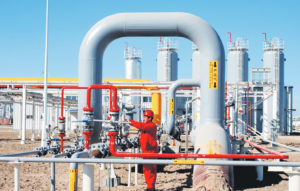
Demircan told Ayan that the draft bill he was working on would open the way for private firms to engage in gas trade with countries Turkey has agreements with once it was approved by parliament. Ayan was in a hurry and did not want to wait for the bill to clear all the bureaucratic procedures and asked if there was any other way to bypass the ban.
Stressing that no exception had ever been made to gas purchases from countries with which BOTAŞ has contracts, Demircan nevertheless said there might be a loophole that could be exploited for Ayan’s business venture. He said the law allowed contracts by private firms only for export purposes or if there was a shortage in the Turkish gas market. “Up until now we have never invoked this [exception],” Demircan said, adding that it might be possible with the help of his ministry for Ayan’s venture to alleviate chronic shortages in the Turkish gas market.
The Turkish official also raised infrastructure problems in the Iranian gas network which from time to time reduced or halted gas exports to Turkey because of a sharp rise in Iran’s domestic demand in winter or production problems. He said some in Turkey might take up this issue and start questioning Iran’s ability to deliver Turkmen gas to Turkey when it was having troubles exporting its own gas to Turkey. Ayan said a case could be made to claim that the supply of Turkmen gas would also help solve Iran’s problems and that this in turn would streamline Iran’s gas delivery to Turkey.
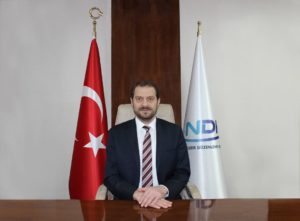
On the phone Demircan appears to have assured Ayan that he would sort out technical problems for the Iran-Turkmenistan venture and said in the end it would be a political decision and that the Prime Ministry, led by Recep Tayyip Erdoğan, would be making it.
Ayan had already secured Erdoğan’s approval. In a leaked audio recording from March 2014, Erdoğan was heard ordering his son Bilal to reject $10 million and hold out for a better offer in the deal with Ayan. “Don’t take it [the money]. Whatever he has promised us, that’s what he should give us. If he’s not going to bring that, there’s no need,” Erdoğan said in the recording. “The others are giving [us that amount]. Why can’t he? What do they think this business is? … But don’t worry, they will fall into our lap.”
The wiretap exposes how the Quds Force operative tried to obtain confidential government documents on natural gas purchases:
It was clear that Ayan promised to give millions of dollars in bribes to Erdoğan in exchange for securing his business venture that extended to Iran. He came up short and offered less than what he had promised, and Erdoğan was furious and was heard instructing his son to not take the money unless the full amount promised was provided.
It appears Erdoğan eventually managed to get his cut in full given the fact that Ayan’s firm was granted the second biggest government incentive in Turkey’s history to build a pipeline to carry natural gas from Iran to Turkey, then on to Europe. Ayan advertised that the pipeline would cost 11.5 billion Turkish lira at the time.
Going back to the original wiretap involving Ayan and Dermircan, more details uncovering the depth and the extent of the Turkish energy official’s involvement with the Quds Force operative can be seen.
In a fast-track approach, Demircan also proposed another solution to address Ayan’s predicament and said it would be much easier if BOTAŞ were to withdraw from the agreement with Turkmenistan. That would clear the way for a private contractor to transport gas from Turkmenistan via Iran and suggested that he would work this out with the undersecretary of the Energy Ministry. He promised to set up a personal appointment for Ayan with the undersecretary and gave suggestions as to how to frame the conversation during the meeting.
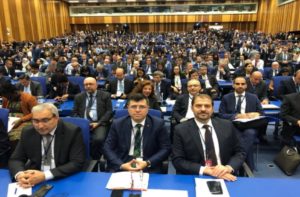
Ayan also revealed that he had already been promised by Energy Minister Taner Yıldız that his private contract would move forward and that he wanted to meet with him again to address the slow procedures.
The two also talked about bringing Turkmen gas through the Caspian Sea and Azerbaijan, but Ayan said any transit deal over the Caspian was not possible and would be a cause for war.
In another wiretap recorded on September 25, 2013 Ayan asked Demircan to obtain a copy of a confidential operational agreement between Iran and Turkey on the delivery of Iranian gas, citing demands from the banks that would finance his business venture. He said that through his contacts in Iran he had already gotten some of the paperwork on the purchase agreement between BOTAŞ and the National Iranian Gas Company (NIGC) but that he was looking to get his hands on the details of the operational agreement.
According to Ayan, the banks wanted to see the settlement procedures in the event of a dispute with Iran, and he wanted to use existing dispute settlement mechanisms employed by BOTAŞ and the NIGC as a template to ease the concerns of the bankers. BOTAŞ and the NIGC had several times been engaged in dispute settlement over pricing and delivery problems for Turkey’s import of 10 billion cubic meters of gas annually. Turkey successfully made its case when it took Iran to the international arbitration court, the International Chamber of Commerce (ICC), in Switzerland.
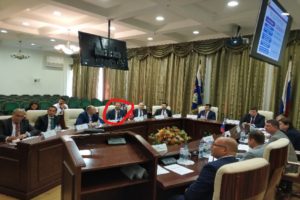
Demircan said his department did not have those agreements and that it might be difficult to get top secret documents, but he promised to do his best to fulfill Ayan’s request and to talk to the undersecretary. At one point, Demircan expressed concern that the banks would not accept documents that were not provided through official channels and asked if they would consider documents handed privately to Ayan to be legitimate. Ayan said that was not a problem and that the bankers simply wanted to see the rules and procedures in the agreement to assess their risk.
It turned out that Ayan tried to get copies of confidential agreements from BOTAŞ but failed. He reached out to Demircan to bypass the system and obtain the copies illegally. He assured the Turkish official that it would be done discreetly as he had done with the Iranians when he got copies of some agreements between Turkey and Iran. He said Iranian authorities would not normally provide those documents to him, either, but he managed to get them somehow. He said never shared them with others and used them only as templates to draw up his own contracts.
Apparently concerned that he would be in trouble if he shared confidential documents, Demircan proposed that the agreement details could be turned into an information note and that it would be easier to turn that over instead of a copy of the agreement itself. He said he would talk to the deputy undersecretary who was responsible for BOTAŞ affairs. Ayan said an information note would work as well.
Turkish investigators named Ayan as a suspect in a Quds Force counterterrorism investigation. The evidence collected through court-authorized surveillance and wiretaps from 2011 to 2014 led the investigators to conclude that he was part of a Quds Force operation in Turkey and was working closely with Iranian handlers.
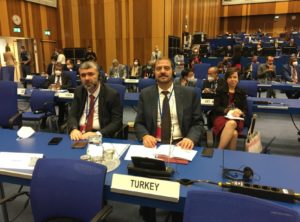
The IRGC Quds Force case in Turkey never went to trial because the Erdoğan government hushed it up in February 2014 after learning about the probe, which incriminated senior government officials. The investigating prosecutor was sacked before he had a chance to secure detention warrants for the suspects and file an indictment. Ayan escaped the long arm of the law thanks to the intervention of Erdoğan, who apparently protected pro-Iranian assets and helped their Quds Force handlers escape from Turkey.
Irfan Fidan, the new prosecutor, personally selected by Erdoğan to torpedo the Quds Force probe, dropped all the charges against the Iranian and Turkish nationals who were identified as part of Quds Force cells. Fidan also launched a new criminal case against everyone who was involved in the investigation into the Quds Force and ordered the detention of the police chiefs who uncovered the sophisticated Iranian network in Turkey. Fidan was rewarded by the Erdoğan government for squelching the probe and appointed as a member of the Constitutional Court in 2020.
Demircan, who would have faced multiple criminal charges for his role in the Quds Force, kept his job at the ministry until 2017, when he was appointed acting director of the Turkish Atomic Energy Agency (Türkiye Atom Enerjisi Kurumu, TAEK). He became a chairman of the NDK in 2019.

